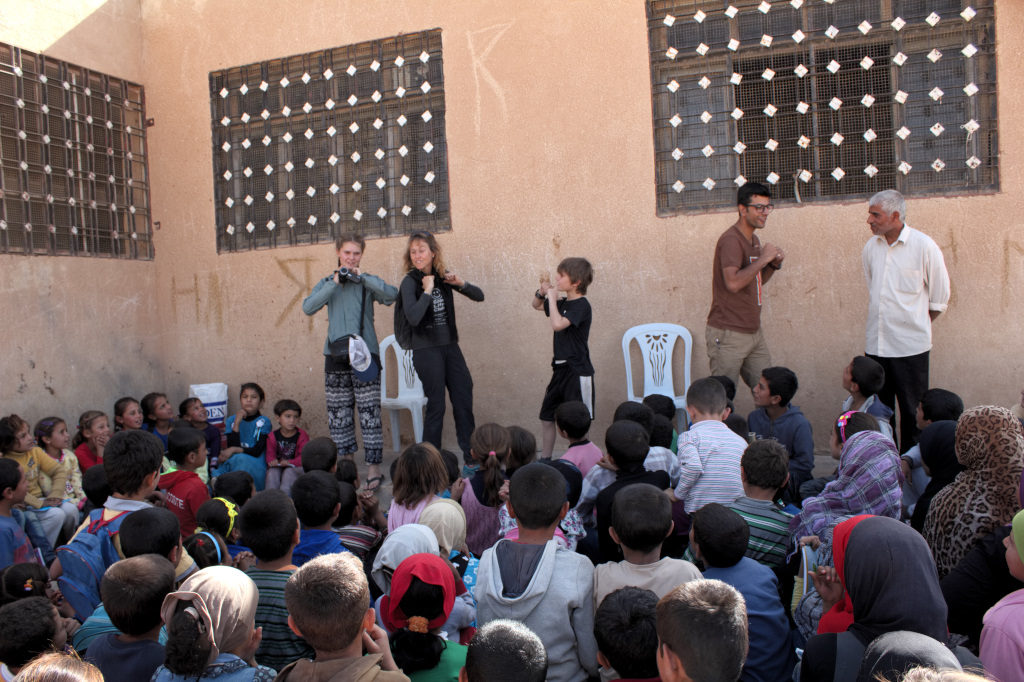Good Life Club in Syria
11 November, 2016
Kurdistan, Northern Syria
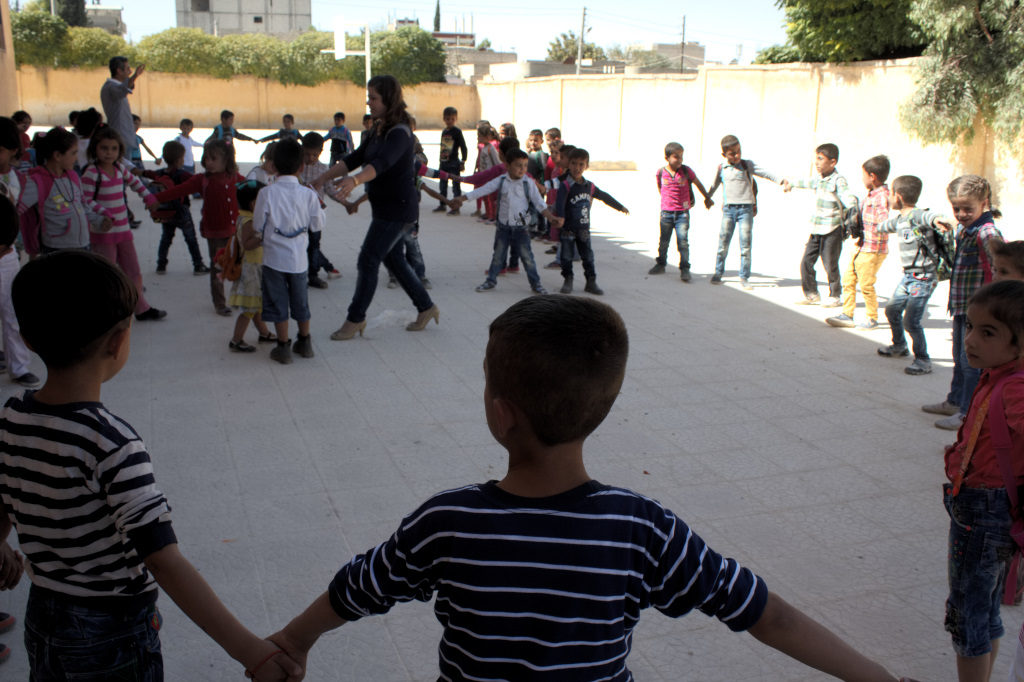
***Correction: In the original version of the report we accidentally wrote “liberated by ISIS”; what we intended to say was “liberated from ISIS.” We are sorry for any confusion this may have caused.***
Everything seemed to rise from the dust in Syria. Dust from the roads filled our car and dust devils spiraled across our path; dryness seemed to be the dominating feature of the landscape. Yet, we found life rising from the dust as we rolled by houses full of families and gardens full of trees: olive, walnut, and pomegranate were thriving where we could only see dust. We had been to Syria four months before, spending just three days in the destroyed border town of Kobane; we had seen brokenness illustrated by skeleton buildings in the neighborhoods, and ‘skeleton’ families of the displaced, widowed and orphaned. This visit gave us twice as much time to see a new front-line area, and new life growing in communities liberated from ISIS as recently as five weeks ago. We were able to put on several Good Life Club (GLC) programs in schools just reopened.
Our first was in Kobane with 200 first and second graders. The education minister told us that the majority of schools functioning before ‘the crisis’ have re-opened after two years of closure. Despite lack of supplies, including functioning and available buildings (some school buildings are still filled with refugees), and qualified teachers, the children are flooding back into the schools eager to make up for lost time. The children lack much needed structure and emotional support as they try to resume some sort of normal life after the trauma of having their communities destroyed.
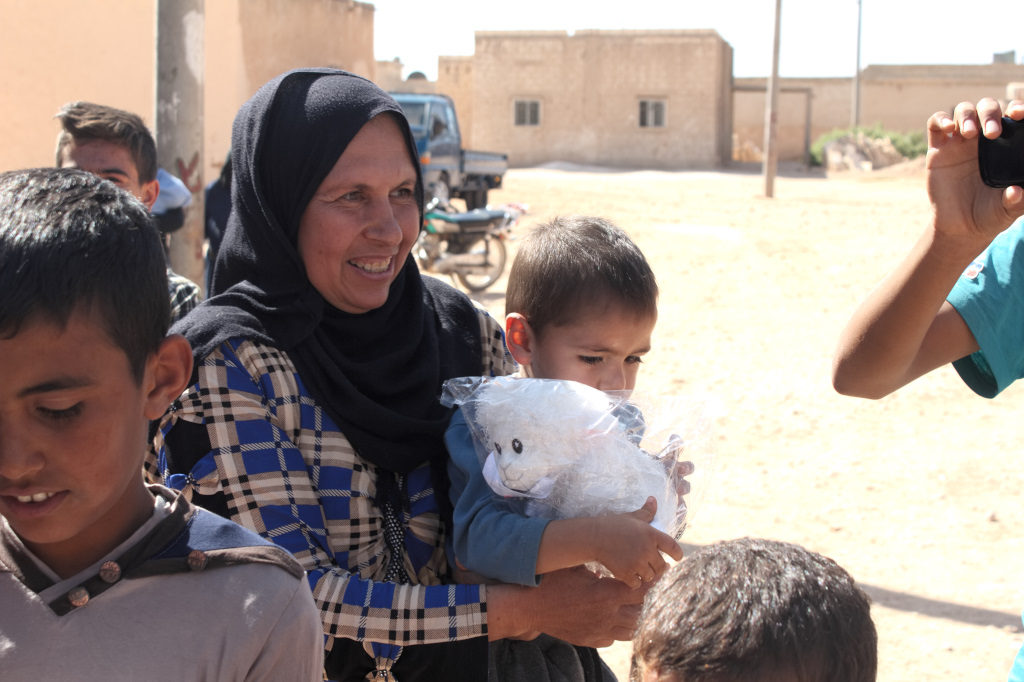
Our next four GLC programs were in villages along the ISIS frontline near the recently liberated city of Mambij. Here, the city and villages live in a precarious place of uncertainty. The frontline is porous, and ISIS is still enmeshed within the community. We stayed in Mambij two nights and saw places where great atrocities were committed by ISIS. Even while we were there our host told us that the night before, four people had been arrested for being in an ISIS cell. These areas are Muslim, but are multi-ethnic, including Kurds, Turkmen, and Syrians. Under the ultra-orthodox regime, the people had moved through their lives isolated from each other in a constant fog of fear. ISIS wanted to control every small detail of their lives. “They always separated boys and girls in everything and were even making 4-year-old girls wear a burka,” one village headman told us. The director of a home for orphaned and handicapped children, where 11 handicapped children lived together as a family, said he thanked God he had not had to give up the four boys that lived with him, though several times officials had threatened to take them so they would be separated from the girls that lived there as well.
Despite the ever-present uncertainty, these areas, like Kobane, were also celebrating school re-openings – some just the day before our visit. The teachers had been hopeful for full classes but most said just over half the number of students had come back. They said that most of the teenagers in these villages had run away to escape conscription by ISIS. Local villagers told us, “We closed the school because Daesh (local slang for ISIS) prohibited any education except radical Islamic education – and then it was only how to wage a holy-war. There was no point in having the school. We all just stayed in our homes during that time.” I could only imagine the depth of their fear and isolation by seeing their joy and gratitude at once again being able to live together, work together, study together – look each other in the eye and pursue together a future that included more than mere survival.
We tried to convey some of this future in our GLC programs. The groups of students, both girls and boys, would start out in orderly rows arranged by their teachers by grade, but these soon dissolved into one large mass of shaking hands and giving hugs as we sang “You are my friend, I love you.” I would ask them, “What is the deepest and widest thing you know?”
The answer was always, “Our water-well, and the Euphrates River!” Bashir, who was both translating for me and filling in the gaps to make the message relevant, led them beyond all they knew to the deep and wide love of God. The simple but profound gospel message told through the five colors of a beaded bracelet we gave out would decorate the wrist of every child by the end of the programs. Our anatomy lesson focused on lungs and the miracle that God puts His breath in us each day. Thanks to our friends at All Things Possible, each child was also given an audio toy that shared messages of God’s love in Kurdish. We gave out food packs to the families of each village we visited, and, once, to a group of some 40 widows in the city of Mambij. Our team also provided medical care along the front line in this area.
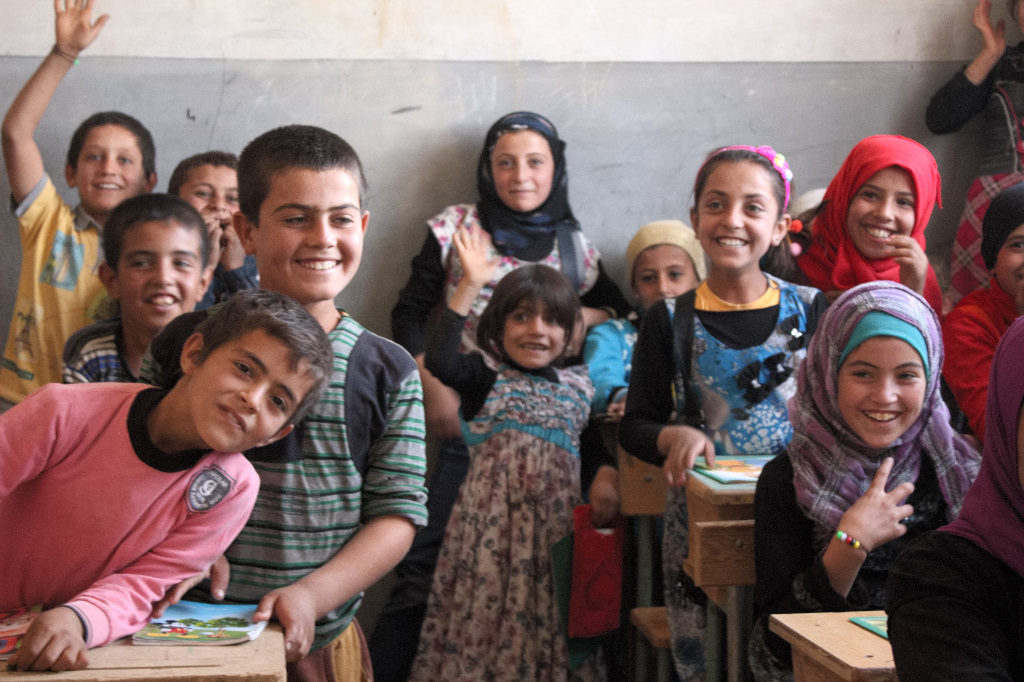
Our last visit was to the Orphanage and Handicap Center in Mambij. We made crafts, played games, and gave gifts to these eight children. We were able to give cash support to the five teachers, two caregivers, director and guard who was disappointed I couldn’t speak French. This facility had been evacuated during the ISIS occupation of Mambij and the director had taken the 11 children to live at his house. In one attack, one of the children and his nephew were killed by sniper fire. They had had to move several times to find safe places for them all to live. Then, just a couple months ago, he had returned to his school and was amazed to find it in great condition, though several nearby buildings were demolished by air strikes. Now up and running, the classrooms had quality academic materials, colorful decorations, chairs and desks and physical therapy equipment. As a teacher, I was overcome with gratitude for the quality of care for these special education children – beyond any standard I had seen available in any of the schools I had visited. In one room Bashir pointed out something very special I would have missed in significance. On the wall was a large Christmas tree. He smiled and said, “This is very unusual among Muslims – this is a very special place.” As we visited with the director and teachers, all very educated, they said that the great needs of their lives and work required that they not limit God and they would love to take the Bibles we offered.
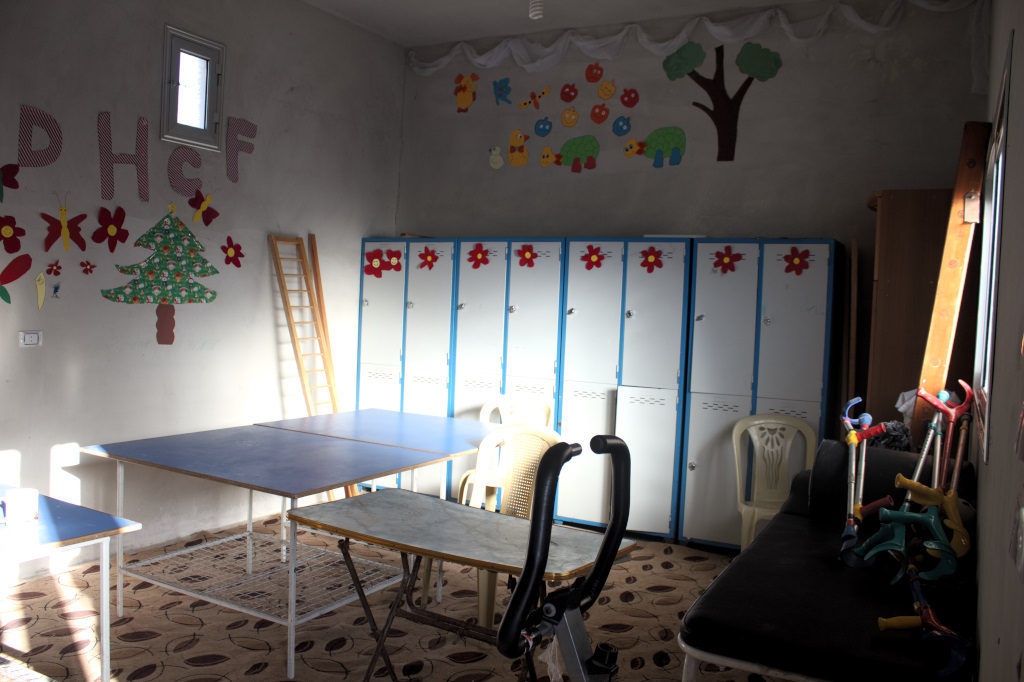
It was another testimony of life growing in places that seemed dry, dusty, sterile. The uncertainty is far from over here: the Turks have become another enemy to the Kurds here, attacking them and also demanding that they pull back from ISIS and withdraw from land they’ve already won back. But just as the stark and empty appearance of the Syrian landscape evidenced a deeper source of life below the surface, we believe that God’s freedom to live together in dignity can and will take root in these vulnerable places. As our team had the privilege of sharing time with these families, our prayer is that the Holy Spirit will water those seeds of life springing up in a dry and thirsty land. Please pray with us.
